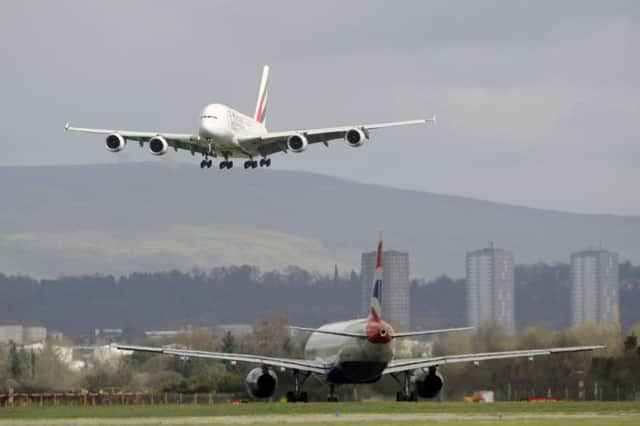Aberdeen and Glasgow airports sold in £1bn deal


The Spanish infrastructure group, which bought airports operator BAA in 2006, has teamed up with Australian investor Macquarie to secure the acquisition, which also includes Southampton airport.
Ferrovial paid £10.6 billion for BAA at the top of the market and retains a 25 per cent stake in the scaled-back group, now known as Heathrow Airport Holdings (HAH).
Advertisement
Hide AdAdvertisement
Hide AdHAH hopes to complete the deal in January, subject to clearance from European regulators. The sale will leave the group with just one airport – Heathrow.
Chief executive John Holland-Kaye said: “Aberdeen, Glasgow and Southampton airports and their people have been part of our company for a long time. They are great airports and we are proud of their achievements. We wish the new owners and our airport colleagues every success and are confident the airports will continue to flourish.
“This sale enables us to focus on improving Heathrow for passengers and winning support for Heathrow expansion. Heathrow is the UK’s only hub airport, connecting the whole of the UK to the world and bringing economic benefits locally and nationally.”
The three airports being sold will continue to be managed locally, while Sir Peter Mason – the Thames Water chairman who used to run engineering firm Amec and infrastructure group Balfour Beatty, will be appointed to chair the trio when the deal completes.
Thames Water is owned by a consortium led by Macquarie, and Edward Beckley, the Australian group’s head of infrastructure and real assets for Europe, said: “As the world’s leading infrastructure asset manager, Macquarie has a long and successful track record of investing in and developing airports around the world.
“We look forward to working with these airports over the long term to support route growth and enhance the passenger experience for the communities they serve.”
Macquarie’s other investments include Bristol, Brussels and Copenhagen airports, as well as National Car Parks and ferry operator Condor Group.
Global Infrastructure Partners bought Gatwick Airport from BAA in 2009 for £1.5bn and three years later acquired Edinburgh for £807m, while last year Stansted was sold for £1.5bn to the Manchester Airport Group.
Advertisement
Hide AdAdvertisement
Hide AdAmid the continuing debate over the expansion of aviation infrastructure in the UK, Edinburgh chief executive Gordon Dewar said last week that a second runway at Gatwick, rather than adding a third at Heathrow, was the “most realistic and deliverable” plan.
A rival proposal for the Thames estuary, dubbed “Boris Island”, has not made the shortlist of options being considered by Sir Howard Davies’ Airports Commission, which is due to deliver its final report next summer.
According to the commission’s interim report, published in December, an additional runway needs to be operational in the south-east of England by 2030, and there is likely to be enough demand to warrant one more by 2050.
A total of 3.4 million passengers and 118,000 flights pass through Aberdeen Airport each year. Some 2,500 people work at the Dyce terminal, including 259 airport employees. It is the world’s busiest commercial heliport, carrying more than 500,000 passengers for the North Sea oil and gas industry.
Glasgow Airport employs 417 people out of a total workforce of 4,500 at the site, which handles about 7.4 million passengers and 80,000 flights a year.
Ferrovial chief executive Iñigo Meirás said: “As a long-standing investor in the UK, we are aware of the importance of these airports for the population in their surrounding areas. The transaction proves how valuable these assets are for Ferrovial.
“We are committed to improve these facilities and their services, looking to a better passenger experience and in order to grant access to further domestic and international destinations.”